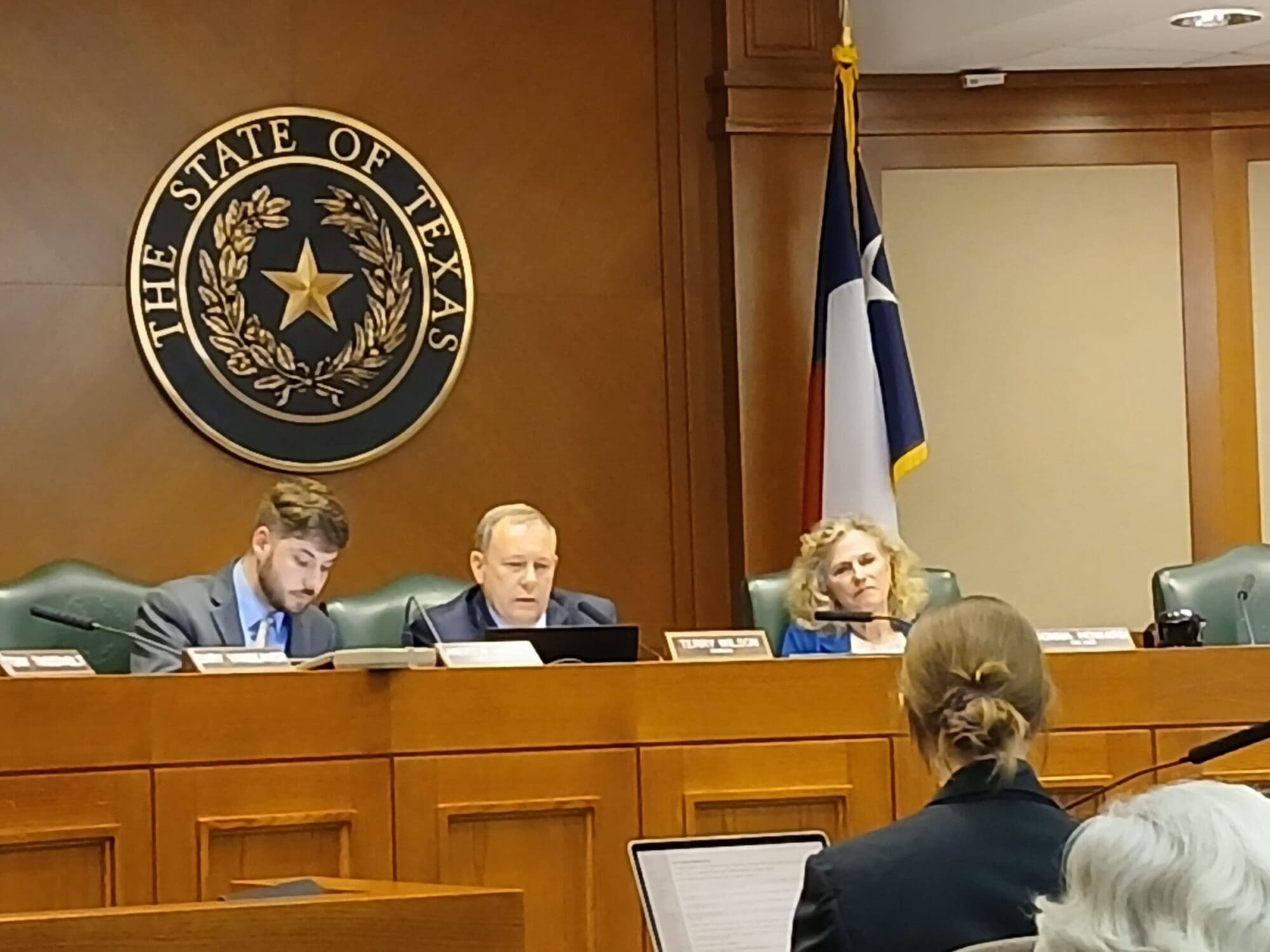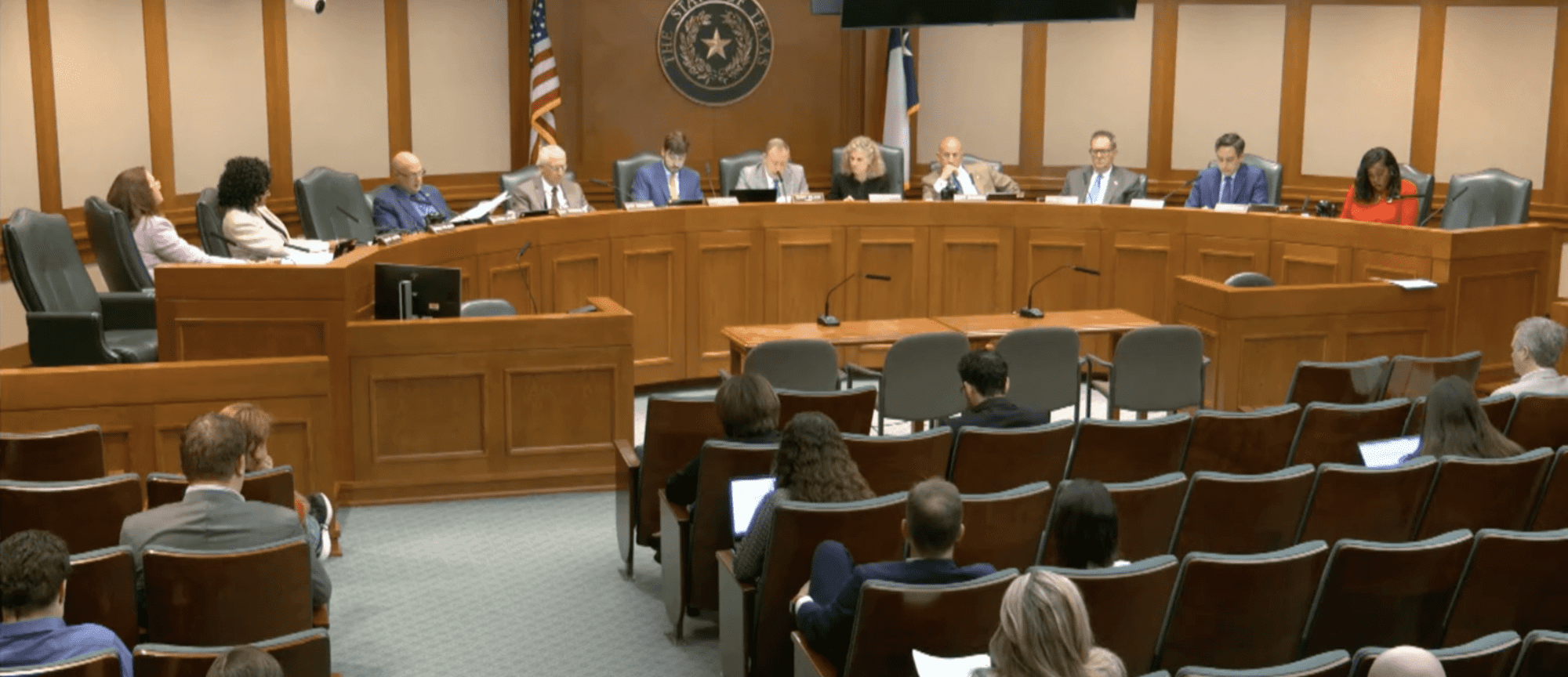Several academics testified against a proposed reform that would end “shared governance” in higher education and create new oversight for curriculum standards.
Senate Bill 37, proposed by State Sen. Brandon Creighton (R–Conroe), would limit the decision-making power of faculty senates and place them in strictly advisory roles. It would also establish strict guidelines for faculty senate composition and meetings and mandate online transparency.
In state universities, “shared governance” describes a system in which universities’ boards of regents share power with the faculty, which is represented by a faculty senate—or, in the case of the University of Texas-Austin, a faculty council.
State Rep. Matt Shaheen (R–Plano), sponsor of the proposal in the Texas House, introduced a committee substitute before the House Higher Education Committee hearing Tuesday evening. If passed, differences between the House and Senate versions of the legislation could trigger a time-consuming conference committee process.
Dozens of Texans, most of whom have a vested interest in the higher education system, testified at the hearing on Tuesday evening in opposition to the legislation.
Angela Valenzuela, a University of Texas-Austin professor who also spoke on behalf of the League of United Latin American Citizens, claimed the proposal “dismantles the foundation of shared governance.” Valenzuela also claimed the bill grants regents “unprecedented powers.”
While boards of regents are accountable to Texans through the governor and state senate, faculty senates enjoy no such accountability. “Shared governance” has come under scrutiny after repeated exposures of left-wing ideology being pushed by university faculty.
Opponents of Creighton’s proposal repeatedly derided its impact on “academic freedom,” claimed it would beget “censorship,” and accused legislators of “politicizing higher education.”
Gary Bledsoe of Austin called SB 37 a “hostile takeover of higher education.”
One University of Texas professor defended the university’s Latin American studies program by touting its role in preparing graduates to work with non-white artists at the Museum of Modern Art in New York City. This witness described Hispanic artists as “Latinx.”
Other opponents voiced concern about the proposal’s impact on social work and social workers. They worried boards of regents would find social work programs not economically viable.
A representative from Texas Transgender Nondiscrimination Scholars worried the proposed measure would “dismantle” her ability to teach LGBT themes and queer theory.
On the other hand, Sherry Sylvester of the Texas Public Policy Foundation provided a snapshot of what “shared governance” has produced. She told state lawmakers in the committee that there are hundreds of UT Austin courses with “race,” “gender,” or “identity” in the course names. By contrast, only a handful of courses on core American documents were taught.
Creighton’s proposal as passed by the state senate would mandate a comprehensive review of general education curricula and degree programs every five years, ensuring they align with workforce demands, promote civic engagement, and adhere to accreditation standards. It would also restrict content that could promote racial or ideological bias, emphasizing a balanced and fact-based approach to education. It is unclear how much Shaheen’s substitute changes Creighton’s original proposal.
An Office of the Ombudsman within the Higher Education Coordinating Board would mediate disputes and enforce compliance with the new standards.
The proposal was left pending in committee.
The 2025 Texas Legislative Session ends on June 2.
No ads. No paywalls. No government grants. No corporate masters.
Just real news for real Texans.
Support Texas Scorecard to keep it that way!





